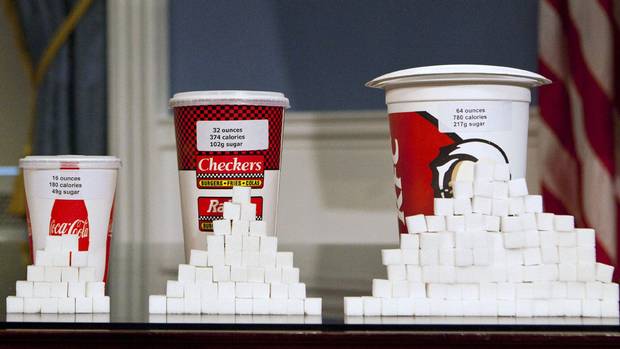
On April 9, 2019 the Assembly Health Committee passed a measure to levy a 2 cent/fluid ounce fee on sugary drinks, the revenues of which would be used to address California’s diabetes and obesity crisis. If passed into law, AB 138, authored by Assemblymember Richard Bloom (D-Santa Monica) could make California the first state in the United States to pass a statewide sugary drink tax.
“The human toll of this health crisis is overwhelming,” said Assemblymember Bloom. “Individuals with diabetes face myriad health impacts, including kidney failure and increased risk of heart disease, stroke, cancer, and death. For too long, we have failed to sufficiently fund prevention programs that could drastically improve the quality of life for the residents of our state.”
Sugary drinks are the single largest source of added sugar in the American diet and are a key contributor the rising rates of obesity, diabetes, heart disease, and tooth decay. Approximately half of adults and 60% of children in the US consume sugary drinks on any given day. On average, children consume over 30 gallons of sugary drinks, enough to fill a bathtub with sugar, every year. Sugary beverage consumption has been linked to increased risk of diabetes and obesity as well as early death and cancer.
Almost three million Californians are already diabetic, and the overwhelming majority of these Californians have type 2 Diabetes, a disease that is largely preventable. These diseases have hit low income communities and communities of color hardest, with Black and Latino Californians experiencing type 2 diabetes at rates nearly twice those of white Californians. The national obesity rate more than doubled over a thirty year span from 1980 to 2010, with low-income communities and communities of color experiencing the highest obesity rates. In addition to significant health impacts, these diseases also bear significant economic costs to the state. Diabetes alone costs California an estimated $27 billion every year in medical costs and diabetic individuals have medical costs that are double those for individuals without diabetes.
Sugary drink taxes have been identified as the most cost-effective prevention strategy, with one study estimating a $30 saving on healthcare costs for each dollar spent on implementation. Results from local ordinances demonstrate a sugary drink tax’s ability to reduce consumption while raising funds for prevention programs. One study found that Berkeley’s sugary drink tax resulted in a 10 percent reduction of sugary drink consumption and a 21 percent reduction in low-income neighborhoods. AB 138 would target a significant portion of funds for prevention programs and will the state save money while improving public health.
“As daunting as the health crisis is, today we have an unprecedented opportunity to act,” said Assemblymember Bloom in his committee statements. “We have seen study after study that confirms the connection between sugary drinks and diabetes. We have witnessed the lengths that the industry will go to in order to profit at the expense of consumers. Support has grown in the public health and medical communities and it is now time for California to step up and do its part.”
AB 138 is sponsored by the American Heart Association, Public Health Institute, and American Academy of Pediatrics, California Chapter.
In response to the bill’s passage out of committee, Matthew Marsom, Vice President for Public Policy and Programs at the Public Health Institute commented: “The evidence and experts are clear: soda has no nutritional value and is a major contributor to the chronic diseases that are killing our families and economy. Assembly Member Bloom and the health committee sent a clear message today: Big Beverage companies will no longer get a pass on the damage caused by their products. The Public Health Institute looks forward to continuing to work with Assembly Member Bloom and the bill’s co-authors to create healthier communities, prioritize prevention and address inequities.”
John Maa, a Board Member for the American Heart Association, Bay Area Division commented: “Consuming sugary drinks regularly – just one to two servings a day – increases the risk of developing type 2 diabetes, heart disease and high blood pressure. These conditions come with a cost – financial and physical. Cheap soda is no bargain. We will be relentless in our work with the California Legislature to pass a statewide sugary drink tax with revenue invested in programs to ensure all Californians have the opportunity to live longer healthier lives.”
Nardos Girma


Be the first to comment